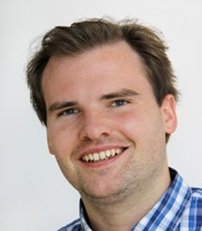
Journal Menu
► ▼ Journal Menu-
- Biomedicines Home
- Aims & Scope
- Editorial Board
- Reviewer Board
- Instructions for Authors
- Special Issues
- Topics
- Sections & Collections
- Article Processing Charge
- Indexing & Archiving
- Editor’s Choice Articles
- Most Cited & Viewed
- Journal Statistics
- Journal History
- Journal Awards
- Conferences
- Editorial Office
Journal Browser
► ▼ Journal BrowserNeed Help?
Announcements
26 January 2024
Interview with Dr. Nico Sollmann—Winner of the Biomedicines Young Investigator Award 2023
Recently, we reached out to Dr. Nico Sollmann, a winner of the Biomedicines Young Investigator Award 2023, as we were eager to hear his perspectives on biomedicines and biomedical research.

Dr. Nico Sollmann graduated from the Medical School at the Technical University of Munich (TUM), Germany, in 2013. He completed the Ph.D. program “Medical Life Science and Technology” at TUM in 2017, followed by a residency at the Department of Diagnostic and Interventional Neuroradiology at Klinikum rechts der Isar (TUM). To focus on research in between his clinical rotations, Dr. Sollmann completed an internship at Harvard Medical School, Boston, USA, in 2016 and held a post-doc position at the University of California San Francisco, USA, in 2021. He currently works as a radiologist in training at the University Hospital Ulm as well as at the Klinikum rechts der Isar (TUM). He has published over 200 PubMed-listed articles and has an h-index of 37. He has been awarded several prestigious scientific awards. Dr. Sollmann continues to serve as a reviewer and editor for multiple journals and is a member of several national and international scientific societies, with a strong focus on neuroimaging and imaging of the spine.
In this interview, Dr. Sollmann offers a glimpse into the dedication and aspirations that have fueled his impactful contributions to the biomedical field.
1. Could you kindly share your sentiments upon winning the Biomedicines Young Investigator Award 2023?
I feel very honored and would like to thank all the Award Committee members for their evaluation and the Section Editor-in-Chief, Prof. Dr. Paul Rösch, for awarding me with the Biomedicines Young Investigator Award 2023. Furthermore, given that research is always a team effort, I would like to thank all my co-workers for their constant commitment, dedication, and inspiration. Working on research projects in addition to daily clinical work can sometimes be quite intense, and I consider this award a great motivator for all our upcoming projects.
2. Would you please provide a brief introduction to your main research focus? Additionally, could you highlight any compelling discoveries or unforeseen challenges encountered during your research journey?
I believe my research interests are quite broad but mostly revolve around quantitative in-vivo magnetic resonance imaging (MRI) in the field of neuroradiology, including imaging of the brain and spine. Two currently ongoing major projects focus on advanced MRI of the neck and shoulder muscles in patients with primary headaches (to elucidate the role of neck and shoulder muscles in the pathophysiology of migraine and tension-type headache) and on longitudinal MRI of the brain following a mild traumatic brain injury (to develop some kind of an individual injury profile that may help to better understand injury-related changes in the brain and to improve patient management and outcome prediction after injury).
One of the main lessons learned over recent years is that most projects take a very different direction than initially thought, and that the success of a project is oftentimes highly dependent on the attitude of the colleagues you work with (not only in terms of the actual findings but also in terms of the joy and gratitude you experience once a project has been completed). Hence, a flexible and curious mindset is key to becoming proficient in science.
3. Could you elaborate on how you initially learned about the Biomedicines journal? Furthermore, what inspired you to apply for the Biomedicines Young Investigator Award 2023?
Together with co-workers, I have published some of our work on spine imaging in the Biomedicines journal before. Hence, I have been aware of the journal and came across the award notification on the journal’s homepage. The announcement appeared to be highly interesting in light of my current career level and scientific profile, thus I wanted to take the chance and applied for this award.
4. In what ways does this award contribute to the advancement of a young/early-career researcher's professional career, such as yours?
I think that an award like the Biomedicines Young Investigator Award can be regarded as a great motivator and a catalyst for ongoing and future projects. Sometimes research projects can be quite time-consuming and demanding, and you do not know whether your efforts will pay off in the end. Hence, such an award helps you to stay on track, and also to keep going during times when you might not see the ultimate benefit of the efforts you put into the research.
5. Do you have any advice for aspiring young researchers looking to make a meaningful impact in their respective fields?
A key piece of advice is to stay on track and make yourself aware that research is often like long-distance running rather than a sprint. Good projects can often take time and you should not get frustrated if initial plans do not exactly work out.
6. As we conclude, could you share your vision for the future of your research and the contributions you aspire to make in the field of biomedicines?
I am most grateful to my colleagues and co-workers for their enthusiasm, and I hope that I can continue relying on and working together with such a great team again in the future. My vision is that our current major projects will lead to clinically meaningful results that can improve patient care and management, and that those results will drive future ideas and collaborations in the field of biomedicines.




